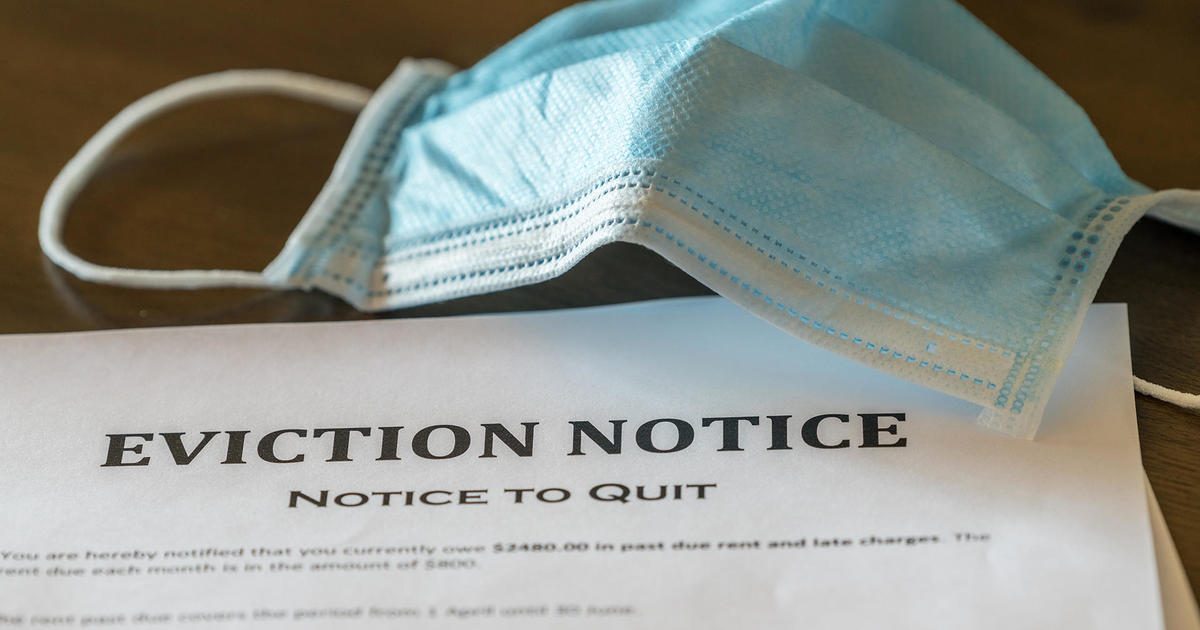Millions of Americans are in danger of losing their homes when federal and local limits on evictions expire at the end of the year.
A new report from the National Low Income Housing Coalition and the University of Arizona estimates that 6.7 million people could be evicted in the coming months. That would approach the number of people who lost their homes to foreclosure during the 2008 financial crisis and ensuing recession.
The number of Americans struggling to pay rent has steadily risen since this summer, according to surveys from the Census Bureau. In the first week of November, about 9 million Americans, or 1 in 6 households, said they were behind on rent.
Some renters who are still paying rent are relying on “unsustainable” income to make ends meet. Among those who report trouble making rent, “More than half are borrowing from family and friends to meet their spending needs, one-third are using credit cards, and one-third are spending down savings,” the report said.
Approaching a “payment cliff”
In early September, the U.S. Centers for Disease Control and Prevention barred evictions through year-end, describing the move as a public health measure to reduce spread of the coronavirus. The CDC order protects renters earning less than $99,000 if they have lost income during the pandemic and are likely to become homeless if they’re evicted. Many states and cities also imposed renter protections during the spring and summer, but some of these eviction moratoriums are themselves expiring.
The situation could reach crisis levels in the new year. With Congress yet to pass another coronavirus relief package, about 12 million Americans are set to lose their unemployment benefits the day after Christmas, a sharp fall in income that would make it harder for many people to pay rent. An abrupt cutoff would slash income by about $19 billion per month, Nancy Vanden Houten, lead economist at Oxford Economics, said in a research note.
Although the Trump Administration has restricted evictions for most households through the end of the year, it did not relieve renters of the need to pay rent. That means many renters may face a “payment cliff” at year’s end, when they must pay several months’ worth of back rent or face eviction.
“If renters are required to quickly repay past due rent or face eviction, the hardship will fall predominantly on lower-income families who have already been disproportionately affected by the coronavirus crisis,” Vanden Houten wrote.
Millions of Americans at risk for eviction
04:51
A groundswell of evictions would cause enormous financial hardship. Losing a home is one of the most traumatic events a family can experience, with research showing that people who have experienced eviction are more likely to lose their jobs, fall ill or suffer from mental-health consequences. Children whose families are evicted are more likely to drop out of school, while evictions also contribute to the spread of COVID-19, according to a forthcoming study from UCLA viewed by “60 Minutes.“
“We’ve got a country that’s about to witness evictions like they’ve never witnessed before,” Laura Tucker, a social worker for Florida’s Hillsborough County School District, told “60 Minutes.”
“An eviction can impact a family’s ability to re-house for more than 10 years,” she said.
For that reason, housing and public health experts have joined economists in calling for the government to provide financial assistance for renters and small landlords.
“Now is the time for action to provide emergency rental assistance. A failure to do so will result in millions of renters spiraling deeper into debt and housing poverty, while public costs and public health risks of eviction-related homelessness increase,” the NLIHC report says. “These outcomes are preventable.”
